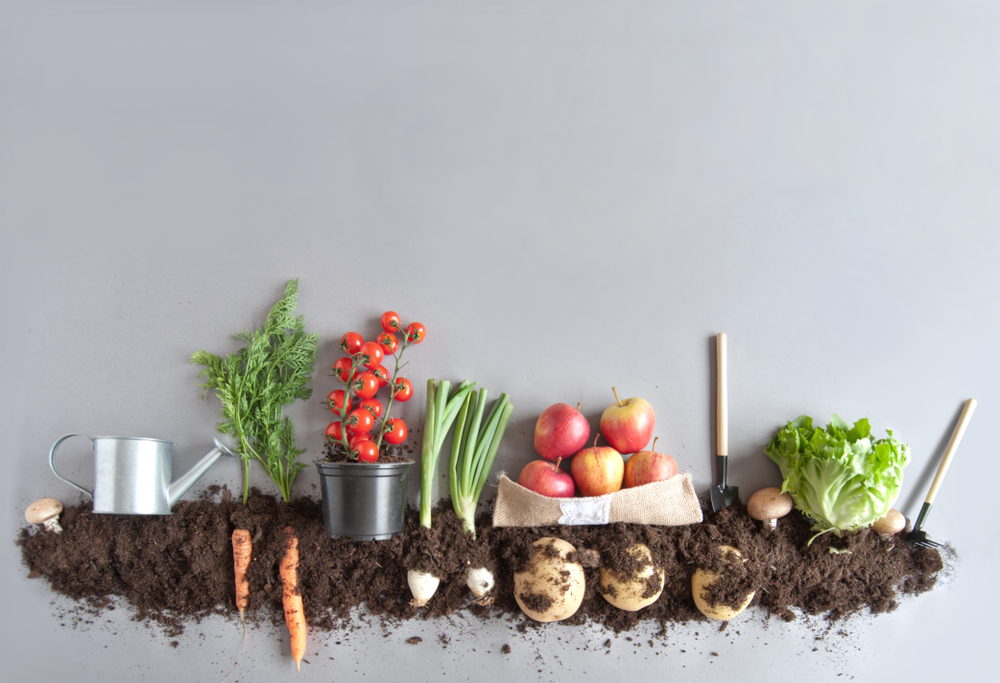
13 Aug Why It’s Common Sense To Compost
The closer to home your greenie efforts start the better and composting is one of those greenie habits that just makes common sense.
It’s the original grassroots recycling. Chucking your kitchen debris out with the rubbish means that your precious organic kitchen waste will just become part of a mess of trash in a landfill, instead of going back to nourish the earth and help her produce more green abundance the way nature intended. Composting is a win-win situation for you and the earth! As spring is fast approaching, why not prepare some divine nutrient-rich soil for the most luscious Spring garden ever?
Indoor Composting
Indoor composting needn’t be an unhygienic smelly affair. It’s simply a matter of throwing your natural kitchen waste into a compost bin instead of your usual dustbin. There are some really simple indoor systems available that are efficient and streamlined, shorten the composting time, and to boot, you can keep in your kitchen without the stink! That means you don’t need to go far every time you want to add to your alchemical earth brew. It also means you can make compost even if you don’t have a lot of free ground space.
What’s To Love
- The enclosed container heats up the contents and speeds up the composting process
- Because it’s indoors, it’s efficient all year round as the temperature indoors is more even
- It won’t be raided by rodents, dogs or other foraging beasties
- It’s odour-free when you use the right materials to help it break down
- Many indoor containers are designed with a tap to drain excess fluid, called Compost Tea, which makes a fantastic natural fertilizer
- It takes up less space
WHAT CAN YOU PUT INTO YOUR COMPOST?
A good compost needs a combination of ‘green’s and ‘browns’. The greens are nitrogen-rich, moist scraps and the browns are carbon-rich, dry, and take longer to decompose. If you are using a Bokashi composter, you can add things you would normally avoid in your compost, such as dairy and meat.
GREENS:
- Fruit & veggie peels
- Coffee grounds, filters and teabags
- Mouldy cheese (only with white mould though)
- Meat
BROWNS:
- Paper & cardboard
- Eggshells
- Stale bread
DON’T ADD:
- Human and animal feces
- Deep fried fats and oils, unless it’s a small part of a foodstuff such as cheese, salad dressing or a fried food
- Anything with green or black mould
- Materials that have been treated with toxic chemicals
- Try using organic food wherever possible, ensuring to rinse your fruit and veg properly before you peel it (always) to remove pesticides
SOME MORE UNUSUAL COMPOSTABLE ITEMS:
- Old wine and beer
- Hair from your brush
- Nail clippings (make sure they are free of nail polish though)
BOKASHI & BOKASHI BRAN
The secret to indoor composting is to help your compost along by adding some beneficial micro-organisms that will assist it to ferment and break down. Regularly adding a layer of Bokashi Bran over the waste in your bin does the job, as well as minimizes any unwelcome smells. Bokashi Bran is a naturally fermented bran that contains probiotics, that is, beneficial little microbes that work for you by digesting and fermenting your scraps.
PRE-COMPOST
Once this fermented mix is ready, you will have a pre-compost. To complete the process, dig a hole, mix the pre-compost in with the soil and leave it for a few weeks, as it is very acidic at first. You can then either plant directly into this prepared bed, or dig up this super soil to spread in your garden. You can also add the fermented Bokashi pre-compost to your outdoor compost heap to speed up its breaking-down process.
ENRICHING THE SOIL USING YOUR COMPOST:
- Nurture your houseplants
- Enrich the soil in your garden and as a fertilizer
- Enrich new planting areas and create super flourishing flower and vegetable Beds
- Scatter over your lawn
- Put around tree bases for a nutrient boost.
COMPOST TEA (EXCESS LIQUID)
Another benefit of using a container to compost is that you can drain off excess liquid and use it as a nutritious ‘tea’. Every few days, you can drain accumulated liquid and either pour it down your drains, giving them a good clean in the process, or you can use it as a super nourishing tea for your plants – just make sure to dilute it 100 to 1 as it’s very acidic.
What nourishes us from the earth should go back to nourishing the earth, it makes common sense! Try some composting magic and you’ll be hooked.



Paul Paans
Posted at 10:57h, 11 DecemberHi Renee,
Great article!! Where does one buy a container for internal compost making- or can one use any basic container I like the idea of a tap on it?
Thanks
Paul